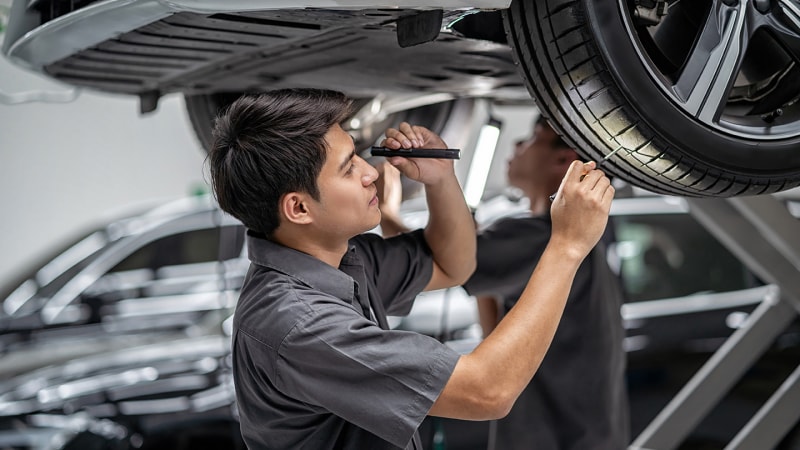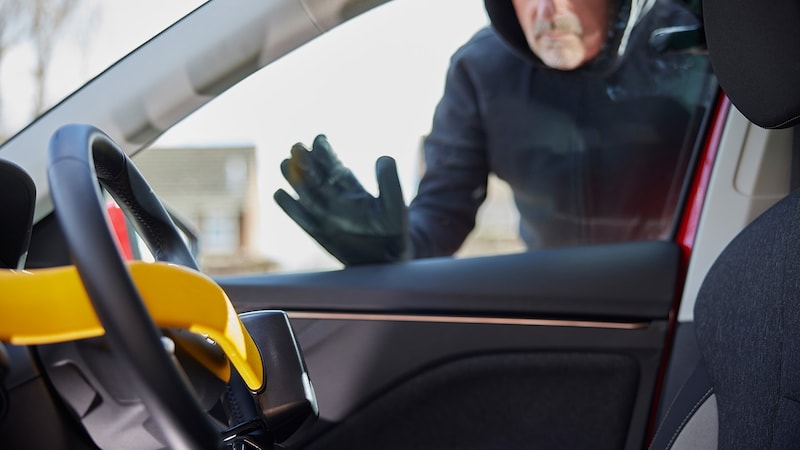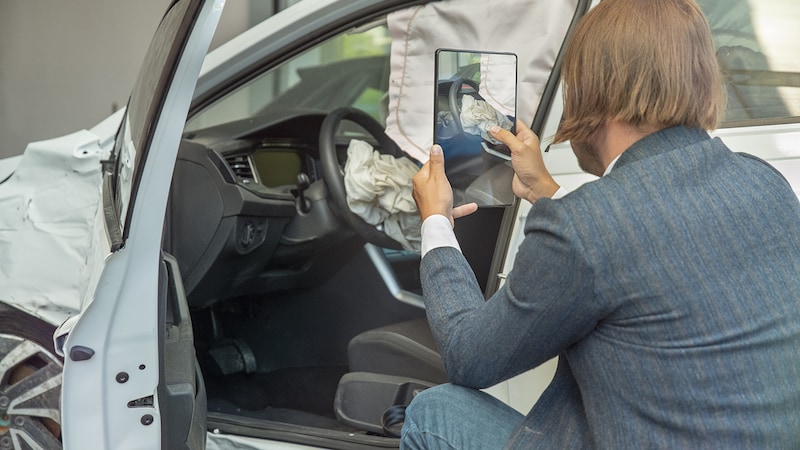The difference between a technical service bulletin and recall

Quick insights
- Both Technical Service Bulletins (TSBs) and recalls are important notifications from car manufacturers about potential vehicle issues. TSBs focus on performance and reliability improvements, while recalls prioritize safety concerns.
- TSBs are non-critical issues but aim to improve the car’s performance and handling. Recalls are usually a more serious issue. Owners must be notified to bring their cars to authorized dealerships for a free repair, replacement of the part or refund if the problem can’t be fixed.
- Whether it’s for improving performance or rectifying potential safety concerns, TSBs and recalls can possibly ensure a safer and more satisfying driving experience.
Imagine you own a particular model of SUV that has been reported to have a minor issue with the power liftgate mechanism (i.e., automatic trunk opener). As a result, the manufacturer issues a Technical Service Bulletin (TSB) advising technicians on how to mitigate the problem.
Let’s say you also own a sedan model with a potential defect in the fuel pump assembly. In response, the manufacturer issues a car recall to replace the faulty fuel pump assembly. Both TSBs and recalls underscore the importance of regular car maintenance and prompt attention to manufacturer recommendations.
What is a technical service bulletin for a car?
A Technical Service Bulletin (TSB) is a communication issued by a car manufacturer to authorized dealerships and repair facilities. These notifications are sent to inform dealerships and service centers regarding known problems that affect specific car models or components. If a relevant TSB applies to the customer's vehicle, the service advisor informs the car owner during their visit to the dealership. TSBs can also be relevant for individuals who have purchased a used car. It's beneficial for used car buyers to inquire about any TSBs that may apply to their vehicle and stay informed about manufacturer updates.
These issues are typically issued for non-critical issues and may not necessarily compromise the safety of drivers and passengers, but they can impact performance, reliability or customer satisfaction. It's important to note that TSBs are not mandatory, but they can serve as a guide for technicians when addressing common problems.
Is a TSB the same as a recall?
No, a TSB is not the same as a recall. A recall is an official notice issued by manufacturers when a safety-related defect or non-compliance with safety standards is identified. The sole purpose of recalls is to remedy safety concerns swiftly. Car manufacturers are legally required to notify affected car owners and offer a free remedy. This generally involves repairing the defect, replacing the affected component or providing a refund if the problem cannot be fixed.
Why TSB bulletins are important to vehicle owners
TSBs are important to vehicle owners for multiple reasons:
- Awareness of common problems: TSBs inform car owners about common problems that have been identified by the manufacturer. This allows the owner to take proactive measures to address them before they become more serious.
- Improving vehicle performance: TSBs often include recommendations for repairs, adjustments and updates. This can improve the overall performance, reliability and safety of the vehicle.
- Ensuring safety: Some TSBs address safety-related problems or defects that could pose risks to car occupants and others on the road.
Does a service bulletin mean free repair?
No, a service bulletin does not mean free repair. Some car manufacturers may cover the cost of repairs mentioned in a TSB under warranty or goodwill programs; however, this is not always the case. It's recommended to check with your dealership or repair facility to understand if the repairs mentioned in the TSB are covered under any warranty or if you will be responsible for the cost.
How to look up technical service bulletins?
There are many ways to look up TSBs for your car:
- Manufacturer’s website: Visit the official website of your car’s manufacturer and look for a “Service” or “Owner” section. Use the vehicle identification number (VIN) to access the TSB database specific to your vehicle.
- Dealership service department: Contact the service department of a dealership that sells or services your car’s brand. Service advisors have access to manufacturer databases and can provide information on relevant TSBs based on your car’s VIN.
- Mobile apps: Some car manufacturers or third-party developers offer mobile apps that provide access to TSBs and tailored notifications based on your car’s VIN. These apps may also include other features such as recall notifications, service reminders and maintenance schedules.
After looking up TSBs for your car, the next steps typically involve determining the relevance of the TSBs to your vehicle and deciding on appropriate actions. You can discuss the TSBs with a mechanic or technician who is knowledgeable about your car’s make and model. They can provide insight into whether the TSB(s) are relevant to your specific situation and recommend appropriate diagnostic tests or repairs.
In summary
Overall, Technical Service Bulletins (TSBs) and recalls play a crucial role in ensuring the performance, reliability and safety of your car. TSBs provide information to technicians and service centers on how to proactively address non-safety related issues. In most cases, customers are notified or can research recalls on their own accord. On the other hand, recalls address safety-related defects mandated by federal authorities to rectify problems that could pose risks to drivers, passengers and other occupants on the road.
Staying updated about both TSBs and recalls can be essential for car owners because it allows you to maintain your vehicles’ optimal condition, safety and performance. When researching TSBs and recalls, refer to the official sources provided by your car manufacturer for the most accurate and up-to-date information or contact a trusted mechanic for guidance.



